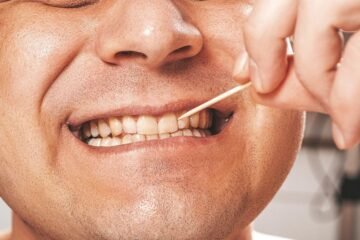What’s Traumatic bite ?
A traumatic bite happens when your teeth come together in a way that causes injury or stress — to the teeth, gums, or jaw. This can be from one tooth hitting too hard, or the jaws not lining up properly.
How do I know if I have a traumatic bite?
You might notice:
-
Pain in your teeth when biting or chewing
-
One tooth feels like it’s hitting before the others
-
Sore or bleeding gums
-
Loose or shifting teeth
-
Jaw pain or headaches
-
Worn down teeth
What causes a traumatic bite?
Some common causes:
-
Misaligned teeth (malocclusion)
-
Missing teeth (which shift how you bite)
-
Dental work that’s too high (like a filling or crown)
-
Clenching or grinding teeth (bruxism)
-
Injuries to the face or jaw
Can a traumatic bite damage my teeth?
Yes. Over time, it can:
-
Wear down your teeth
-
Cause teeth to crack or become loose
-
Lead to gum problems or even tooth loss
-
Contribute to jaw joint (TMJ) issues
Can a dentist fix a traumatic bite?
Yes, depending on the cause. A dentist might:
-
Adjust a high filling or crown
-
Recommend braces or Invisalign to realign teeth
-
Suggest a nightguard if you grind your teeth
-
Use reshaping techniques (bite adjustment)
Can grinding my teeth cause a traumatic bite?
Yes. Constant grinding or clenching (especially at night) puts too much pressure on certain teeth, leading to trauma, wear, and bite issues.
Is it expensive to fix?
It depends. A simple adjustment might cost very little. But if orthodontics or major dental work is needed, it can be more expensive. Your dentist can walk you through options.
What do we do to correct Trauma from occlusion at Eira
-Intra oral scan is done -Used for treatment planning and patient education
-If orthodontically correct able -Aligners or Braces are advised
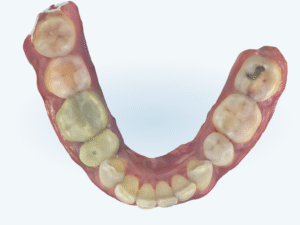
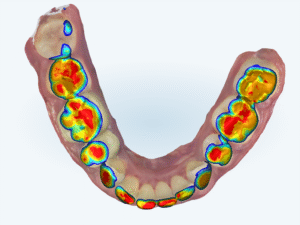
![]()
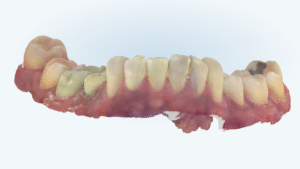
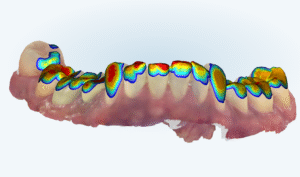
This scan done using Itero scanner which helps to locate areas on the teeth which have uneven contact points. The scale showing from Blue to Red shows the severity of the trauma .
Early diagnosis and intervention are crucial for preventing long-term damage. If you experience any of the symptoms mentioned, it’s important to consult with a dentist to get the right treatment and alleviate the trauma caused by occlusion.
